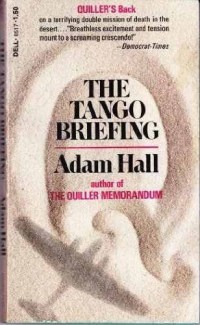Dead Lions by Mick Herron
 Monday, May 13, 2013 at 9:37PM
Monday, May 13, 2013 at 9:37PM 
Published by Soho Crime on May 7, 2013
Dead Lions has everything a good spy novel needs -- intrigue, strong characters, crafty tradecraft, byzantine plotting, sharp prose -- with the addition of a healthy dose of humor. The heroes (if you could call them that) are slow horses: Intelligence Service officers who aren't trusted with serious work, assigned to Slough House in the hope that they will retire or die of boredom.
Dickie Bow, a former spook with a drinking problem who went off the books after the Cold War ended, spots a Moscow hood in London and, acting on instinct, follows him. While riding a bus a couple of seats behind the hood, Bow dies, apparently of a heart attack. Jackson Lamb, in charge of Slough House, investigates Bow's death, while his employees are diligently avoiding productive work -- not that they're ever given productive work to do. The slow horses are an engaging group of misfits, and as the novel unfolds, we get to know them all. We even start to like them ... most of them, anyway.
The Cold War is over, but as Lamb investigates Bow's death, he begins to wonder whether there are Russian spies who didn't get the memo. Particularly the greatest spy of all, a legend who never existed -- unless he did. Lamb's minions at Slough House aren't particularly suited for field work, but Lamb decides to mount an operation that will get to the bottom of Bow's (presumed) murder and a (presumably) long-dormant scheme involving sleeper agents. Meanwhile, without Lamb's knowledge, two slow horses are borrowed from Slough House and tasked with creating a security plan for an upcoming meeting with a Russian industrialist. As you would expect, these plot threads eventually join into a single strand.
I've read any number of spy novels that are more somber than this one without being half as clever. The plot is both wild and wickedly smart. It's also more believable than the plots in many novels that are meant to be taken more seriously. Mick Herron writes in a tone of perfectly understated sarcasm that never fails to amuse. At the same time, he manages to tell a conventional spy story that is sometimes heart-warming and always intriguing. Toward the end, he delivers the excitement of a thriller. All of that, coupled with the cast of quirky characters, make me want to read the novel that introduced the slow horses.
RECOMMENDED
 TChris |
TChris |  Post a Comment |
Post a Comment |  Mick Herron,
Mick Herron,  Recent Release,
Recent Release,  spy in
spy in  Thriller
Thriller 


